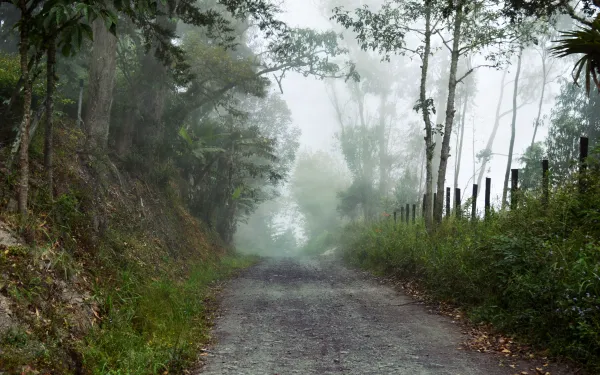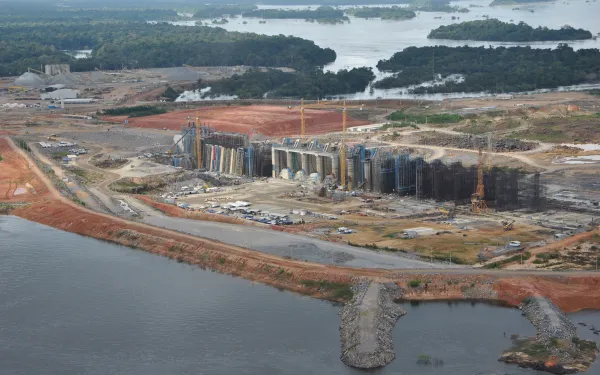Indigenous and Riverbank Communities Call on the Inter-American Commission on Human Rights to Suspend the Massive Belo Monte Dam in the Brazilian Amazon
FOR IMMEDIATE RELEASE November 11, 2010 Media Contacts: Astrid Puentes, AIDA - +1 510 984 4610, [email protected] Andressa Caldas, Justiça Global: +55 21 2544 2320 / 21 8187 0794, [email protected] Renata Pinheiro, Xingu Alive Forever Movement: + 55 93 9172 9776, [email protected] Christian Poirier, Amazon Watch: +1 510-666-7565, [email protected] As the government prepares to issue the dam’s construction license, communities urge the Commission to denounce illegalities in licensing and violations of human rights Washington, D.C., Brazil- Today international and Brazilian human rights and environmental organizations submitted a formal petition to the Inter-American Commission on Human Rights (IACHR), denouncing grave and imminent violations upon the rights of indigenous and riverine communities that will be affected by the construction of Belo Monte Dam Complex on the Xingu River in the Brazilian Amazon. Signed by the Xingu Alive Forever Movement as well as the representatives of affected communities – the Conselho Indigenista Missionário (CIMI), Coordenação das Organizações Indígenas da Amazônia Brasileira (COIAB), Prelazia do Xingu, Sociedade Paraense de Direitos Humanos (SDDH), Justiça Global, and the Interamerican Association for Environmental Defense (AIDA) – with the support of over twenty organizations and social movements, the petition urgently calls on the Commission to adopt “precautionary measures” that would compel the Brazilian government to halt plans to build the dam, slated to be world’s 3rd largest. The petition documents the Brazilian government’s violation of international treaties, ignoring the fundamental rights of indigenous peoples from the lower Xingu Basin, including the Arroz Cru, Arara da Volta Grande, Juruna do Km 17 and Ramal pas Penas communities. It also highlights major threats posed by the Belo Monte Dam, including forced displacement of communities without insuring their free, prior and informed consent, threats to food security and access to drinking water. “The government claims that the Juruna will not be affected, but we do not believe this. We have not been consulted and we do not want the government to speak for us,” said Sheyla Juruna, member of a Juruna indigenous community that will be affected by Belo Monte. “We are against the Belo Monte Dam and we are committed to fight with our bodies and souls to defend our lives and the life of our river.” The IACHR petition comes on the same week as prosecutors from Brazil’s Federal Public Ministry (MPF) sent a document to Brazil’s environmental agency IBAMA advising that the agency not issue an installation license until the dam-building consortium Norte Energia can comply with an obligatory set of social and environmental conditions. Norte Energia and the Brazilian government have been pushing IBAMA to issue a “partial” installation license, which would allow the project to break ground without complying with legally binding conditions on the dam’s provisional license. Based on assessments from government agencies – like IBAMA [Brazil’s environmental agency] and the Federal Public Ministry – and those from groups of specialists, the organizations affirm that the construction of Belo Monte will increase illness and poverty, while causing a surge of disorderly migration to the region that will overload health, education, and public safety infrastructure. The petition concludes: "Despite the gravity and irreversibility of the impacts of the project to local communities, there were no appropriate measures taken to ensure the protection of human rights and the environment." “It worries us how the Brazilian government is ignoring national and international standards to accelerate this project, even at the expense of human rights and the environment,” affirmed Astrid Puentes Riaño, the co-Director of the Interamerican Association for Environmental Defense (AIDA). “Moving forward without taking precautions required by international norms will only result in human rights violations and the irreversible destruction of a critically important region of the Amazon.” In addition to calling attention to the illegalities and human rights violations associated with the Belo Monte Dam, the petition cites an important precedent, pointing out that in 2009 the IACHR implemented similar precautionary measures, leading to the suspension of the Chan-75 hydroelectric dam in Panama due to possible violations of indigenous communities’ rights. ### For more information on the Belo Monte Dam, visit: http://xingu-vivo.blogspot.com http://www.aida-americas.org http://www.internationalrivers.org http://amazonwatch.org /
Read more




